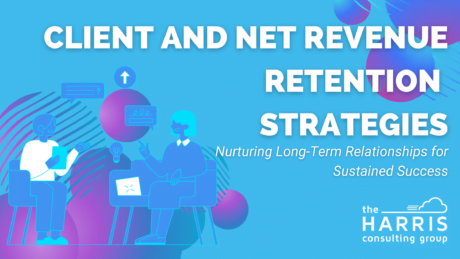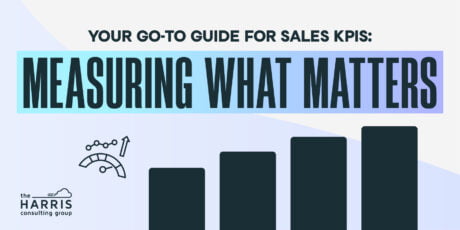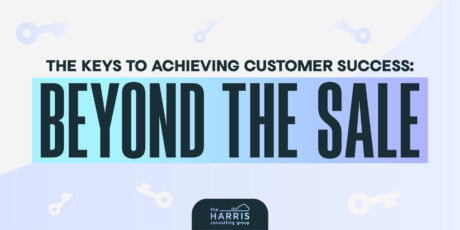Engaging in pricing conversations is an indispensable facet of the sales process, with the potential to exert a profound influence on the final outcome. Among the various challenges that sales professionals encounter, one recurrent hurdle emerges when prospective customers voice concerns regarding pricing, perceiving it as either too high or incompatible with their budget constraints. This blog post embarks on a journey to explore a nuanced and strategic approach in addressing these objections, underscoring how astute communication can unveil concealed intentions. By assimilating the subtle cues and employing this invaluable insight, sales professionals can further hone their negotiation skills, potentially redirecting prospects towards a more reflective and deliberate decision-making trajectory.
The Power of “Matter of Fact” Responses
First, we will introduce a compelling response to pricing objections, such as your product being too expensive or they don’t have much budget. Speaking in a Matter of Fact way is in basics terms, speaking in a direct and factual way to the customer. One way of doing this is like so, “Understood. The thing is, our pricing is based on the market as a whole. The demand for our service and the value they get (insert some value driver) has made us a high quality tool that also means a high level of service goes into maintaining it. Will this hold you back from making a decision?”
This simple, yet strategic answer serves as a trigger, prompting an immediate subconscious reaction from the prospect. Within mere seconds, critical cues emerge that can signal whether the objection is genuine or if there’s more to the story (aka, the prospect will divulge if this really is a concern of theirs or are they just programmed to negotiate price.)
Identifying Subtle Clues in Pricing Conversations
The heart of the approach lies in detecting specific behavioral patterns exhibited by the prospect within those initial 5 seconds:
- Scattered Speech: A hesitation mixing of reasoning in their speech can be a revealing indicator that the prospect might actually be hesitant on the reason behind why price is a topic at all.
- Increased Speaking Speed: Rapid speech could signify nervousness or discomfort, hinting at potential dishonesty.
- Grasping Subjective Arguments: If the prospect diverts attention to trivial details like competition, it might be a diversionary tactic to mask their true reservation.
Now, it is important to remember, just because you disagree with the fact that the prospect is pushing on this doesn’t mean you should discount their opinion or disrespect their point of view – you should always take serious the emotions and concerns a prospect gives.
Understanding the Power of Clusters
While each of these cues in isolation might present an ambiguous portrait, their significance is magnified when observed as a cluster. Research substantiates the assertion that these behavioral clusters frequently manifest within the initial 5 seconds of an interaction. Consequently, they emerge as an invaluable toolkit for sales professionals, enabling them to expeditiously gauge the prospect’s authenticity and intentions.
Turning Insights into Action
Salespeople can leverage this insight to guide the conversation towards a more productive direction. Armed with the recognition of subtle cues, sales professionals can directly address the prospect’s concerns. For instance, when confronted with a prospect who expresses hesitations, try probing deeper with questions like: “We are slightly apart here. I am curious, do you envision involving multiple decision-makers and investing substantial time in evaluating other options?” For some companies, this can mean 6 different people and 5-7 hours of time invested. By using your cues and guiding people back to a meaningful discovery question about the process you can maintain control and also continue to challenge the process.
The Hidden Costs of Delay
Delays caused by extended evaluation processes can translate into other hidden costs for the organization. These costs include deferred implementation of a solution, rescheduled priorities, and missed opportunities. By emphasizing the broader economic impact, sales professionals can encourage prospects to reevaluate their decision-making approach.
We spoke about this in a previous blog – the hidden cost of waiting for sales training, this is a prime example. Sales Ops and leaders, you can read that here.
Empowerment through Training
Embarking on a journey to enhance negotiation skills is a commendable pursuit, and training programs like the Next Level Qualification and Discovery Sales Skills offer a comprehensive toolkit. These programs delve into the intricacies of prospect behavior and communication dynamics, equipping sales professionals with the mastery needed to decipher intentions within a mere 90 seconds. Such a skillset amplifies negotiation efficacy, empowering sales personnel to not only navigate pricing conversations adeptly but also to guide prospects toward an enlightened and methodical decision-making process.
Pricing conversations are a critical battleground where deals can be won or lost. Navigating objections about pricing demands finesse, and the ability to uncover hidden intentions can be a game-changer.
By responding insightfully, identifying subtle cues, and understanding the power of behavioral clusters, sales professionals can reshape these conversations. They can turn objections into opportunities, guiding prospects towards more informed decisions and fostering meaningful connections.
However, mastering these skills takes time and practice. That’s where training programs like the Next Level Qualification and Discovery Sales Skills come in. They offer a deeper understanding of prospect behavior and communication dynamics, empowering salespeople to enhance their negotiation effectiveness.
Remember, every pricing objection is an opportunity in disguise. With the right approach, you can turn objections into closed deals and build lasting relationships with your clients.
So, are you ready to unlock the power of pricing conversations? Visit The Harris Consulting Group and book a time to chat with me.






